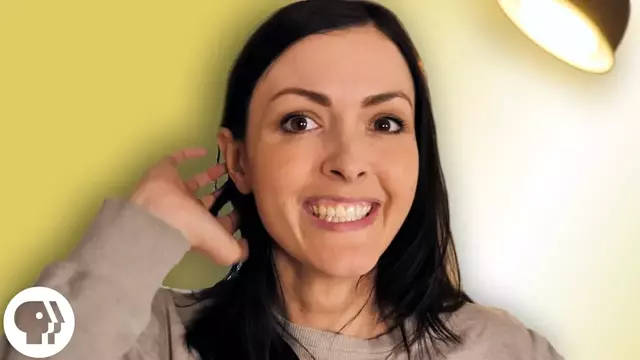2018-03-22
[public] 74.0K views, 4.10K likes, 77.0 dislikes audio only
The science of awkwardness. Hi.
Want to get my new email newsletter? Okay: https://mailchi.mp/4cc014f830f4/normaldistribution
Cringeworthy: A Theory of Awkwardness, by Melissa Dahl http://amzn.to/2FRoLYT
ORDER BRAINCRAFT MERCH! 🧠https://store.dftba.com/collections/braincraft
SUBSCRIBE to BrainCraft! 👉 http://ow.ly/rt5IE
My Twitter https://twitter.com/nessyhill | Instagram https://instagram.com/nessyhill
We can all be pretty awkward. Right? Here we cover the psychology of awkwardness. But it's not all bad news. It’s a good thing that we’re aware of ourselves and care about how others perceive us. Feeling awkward can push us to sharpen our social skills. 👌
BrainCraft was created by Vanessa Hill (@nessyhill) and is brought to you by PBS Digital Studios. Talking psychology, neuroscience & why we act the way we do.
This episode was written by Bahar Gholipour, filmed by Dominique Taylor, edited, hosted and produced by Vanessa Hill.
REFERENCES 📚
Cringeworthy: A Theory of Awkwardness, by Melissa Dahl http://amzn.to/2FRoLYT
Emergence of self-awareness and co-awareness in babies:
Rochat, P., Broesch, T., & Jayne, K. (2012). Social awareness and early self-recognition. Consciousness and cognition, 21(3), 1491-1497. https://www.ncbi.nlm.nih.gov/pubmed/22673374
Gilovich, T., Medvec, V. H., & Savitsky, K. (2000). The spotlight effect in social judgment: An egocentric bias in estimates of the salience of one's own actions and appearance. Journal of personality and social psychology, 78(2), 211. https://pdfs.semanticscholar.org/3d2a/1c99395124bf9372e1493f314f6990a78473.pdf
Gilovich, T., Medvec, V. H., & Savitsky, K. (2000). The spotlight effect in social judgment: An egocentric bias in estimates of the salience of one's own actions and appearance. Journal of personality and social psychology, 78(2), 211. https://pdfs.semanticscholar.org/3d2a/1c99395124bf9372e1493f314f6990a78473.pdf
Brooks, A. W. (2014). Get excited: Reappraising pre-performance anxiety as excitement. Journal of Experimental Psychology: General, 143(3), 1144. ttps://www.hbs.edu/faculty/Pages/item.aspx?num=45869
Awkward: The science of why we're socially awkward and why that's awesome by Ty Tashiro http://amzn.to/2G6fZJW
/youtube/video/IHOXWcUInnE
/youtube/video/HQQe_yFDf0U
/youtube/video/AKD32RdHOpY
/youtube/video/wc5IFNpi43A
/youtube/video/XqdULycjBYg?t=225
/youtube/video/XqdULycjBYg?t=272
/youtube/video/XqdULycjBYg?t=277
/youtube/video/wc5IFNpi43A
/youtube/channel/UCt_t6FwNsqr3WWoL6dFqG9w
youtube.com/watch?v=Cs2azOCBF1M

